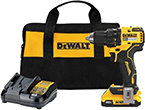Troubleshooting Dishwasher Problems
How many times have you come home from a long day at the office, expecting to be able to have a nice yummy dinner on your freshly cleaned dishes, only to open up the dishwasher to find that they are still dirty after being washed? Troubleshooting dishwasher problems is something that every person should know at least the basics of. Unfortunately, this is not always the case. Here are a few simple ways that you can troubleshoot your dishwasher problems.
- Scrape the dishes. Did you scrape your dishes off before you put them into the dishwasher? Surprisingly many dishwashers will not be able to clean off all kinds of food particles. In order to make it a little easier for your dishwasher to clean, make sure that you at least scrape (not wash) the dishes before you place them into the dishwasher. This means that you don't leave any spaghetti noodles stuck to the plate, or that large pieces of food have been removed before placing the dish into the dishwasher.
- Properly load the dishwasher. Was the dishwasher properly loaded? If you do not properly load the dishwasher, you will not be able to get all of your dishes clean. Most often this means that you have large cake pans, baking dishes, pots, or pans on the bottom shelf. This will prevent the vast majority of the water from getting to the top shelf, and thereby decreasing the amount of cleaning power your dishwasher has.
- Check the spin arm. Remove the bottom shelf of the dishwasher and check the spin arms. These are the arms that spin around and throw water everywhere in the dishwasher. Over time the little holes that the water comes out of can get clogged. It doesn't matter if they become clogged from calcium buildup or from food particles that have gotten dried onto the arms. If the arm holes are not cleaned every so often, then the cleaning power of your dishwasher decreases.
- Check the drain screens. Periodically you will need to check the drain screens along the bottom of the dishwasher. The reason for this is that over time your screens can become clogged with food, and this food will be thrown around the dishwasher, defeating the main purpose of the dishwasher.
Finally, if you have checked all of these issues and you still find yourself with dirty dishes after using the dishwasher, then you have a problem. Call in a professional service man to take a look at the appliance for you, but be sure that you explain that you have checked these common problems.
Author Bio
Doris Donnerman
Doris is a jack of all trades, writing on a variety of topics. Her articles have helped enlighten and entertain thousands over the years. Learn more about Doris...
Repel Ants with White Pepper or Sage
Instead of reaching for that can of bug spray or buying toxic pesticides and insecticides, use two common household ...
Discover More
Border Terrier
The Border Terrier is primarily used as a working dog. He is active, strong and an avid fox hunter.
Discover More
Affenpinscher
Also known as the Monkey Dog, the Affenpinscher's physical attributes resemble a monkey. He is small yet sturdy and a ...
Discover More
More Home Improvement Tips
Replacing Your Stove and Range
It has often been said that the kitchen is the heart of the home. If true, then it could easily be stated that the stove ...
Discover More
Tiling a Kitchen Backsplash
If you are looking to truly make your kitchen unique, then you may be looking to have a tile backsplash. Tiling a kitchen ...
Discover More
Replacing Your Refrigerator
Refrigerators are a vital necessity in anyone's kitchen, and they get a lot of use and abuse. Due to the very nature of a ...
Discover More

Comments